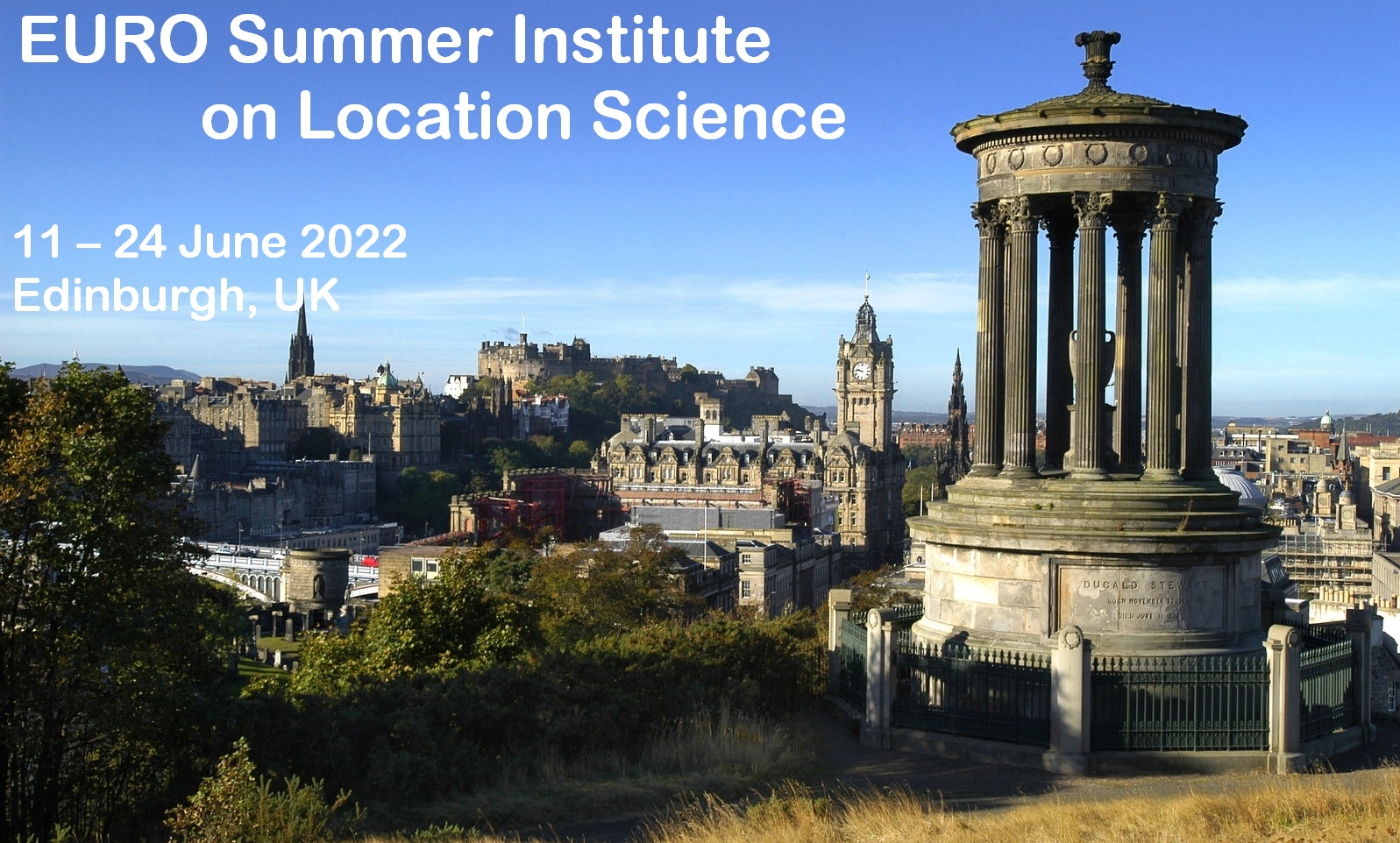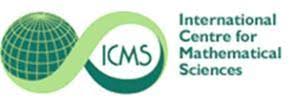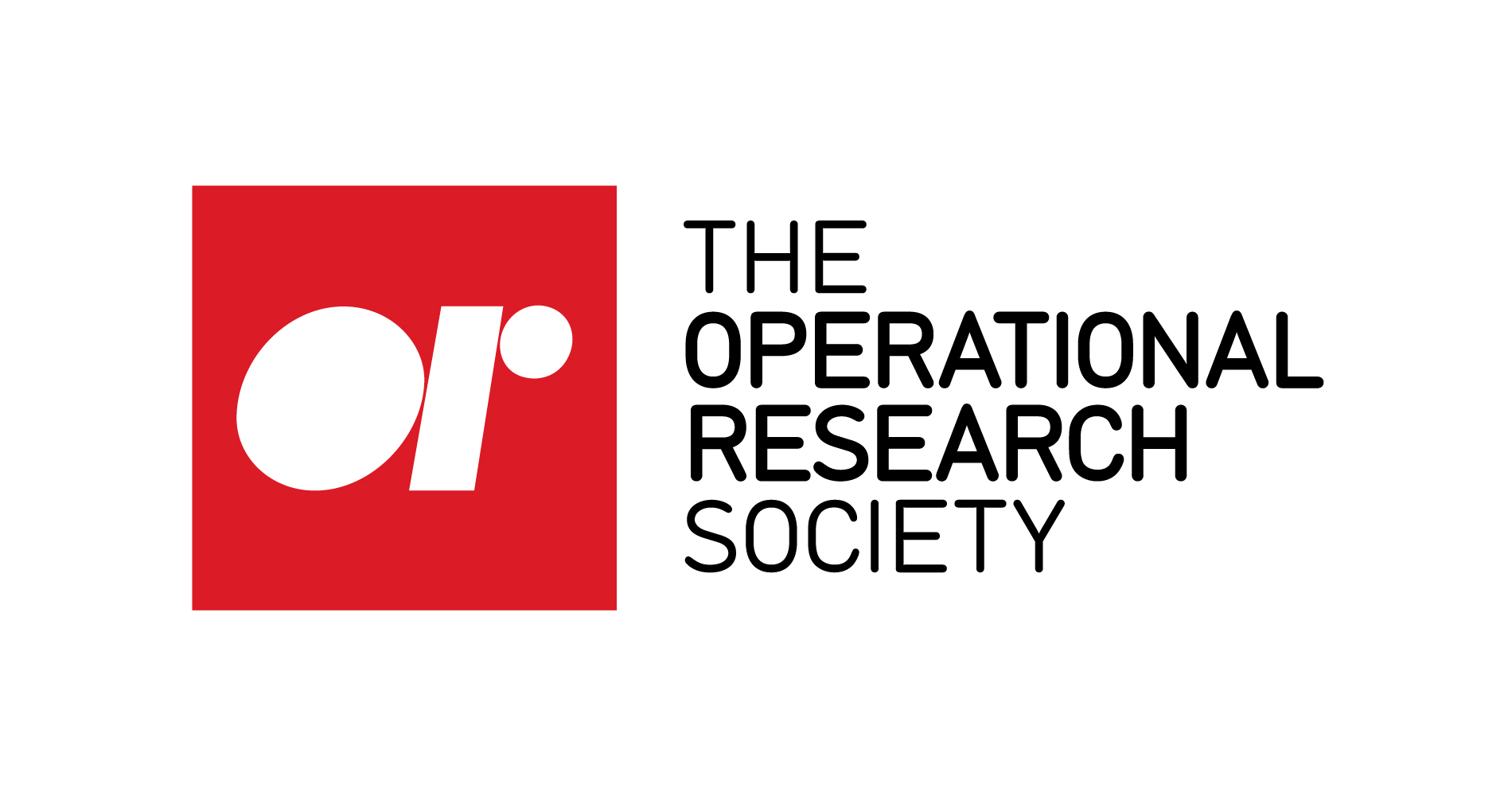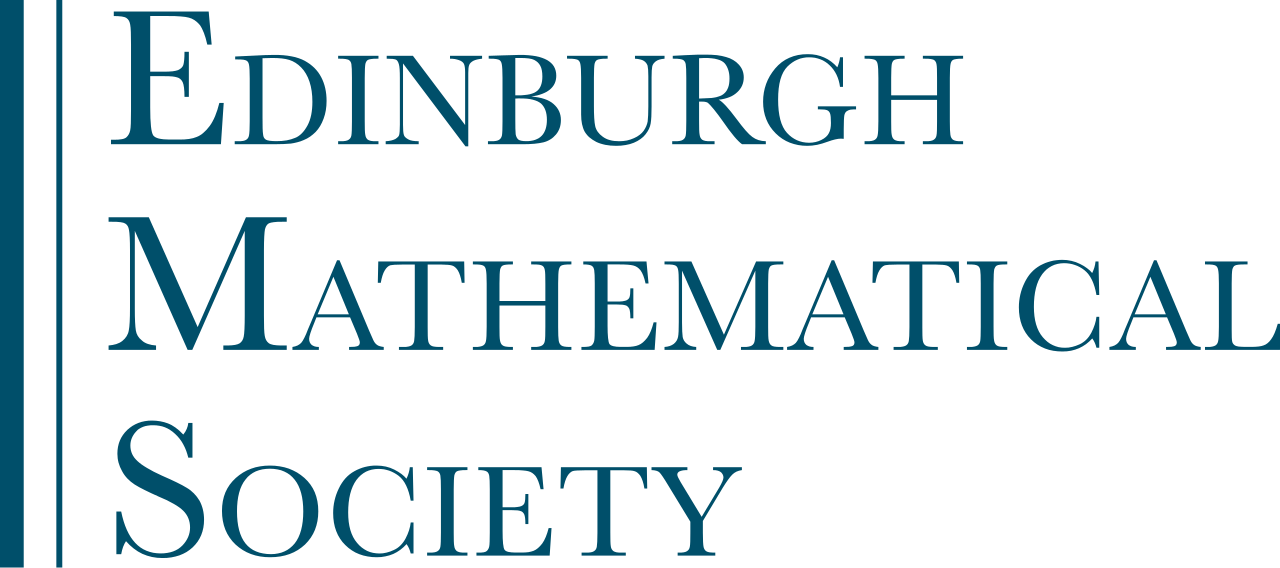Scientific Program
Each invited expert will give a 90 minute presentation and each laureate will have 50 minutes to present their work (including questions).
The preliminary timetable for the core activities during the insitute is
We are very pleased to say that there will be a special issue of Computers & Operations Research covering the topics of the ESI and that selected papers of the Institute will be eligible for submission.
Detailed Program - Week 1
Monday, 13 June
- 9:00 - Opening session
- 9:30 - Boglárka G.-Tóth, Competitive location models
- 11:00 - Coffee break
- 11:30 - Marta Baldomero-Naranjo, Upgrading edges in the maximal covering location problem
- 12:20 - Gyöngyvér Vass, Solving influence maximization by covering models
- 13:10 - Lunch
- 15:00 - Ricardo Gázquez, Discrete-continuous maximal covering location under uncertainty
- 15:50 - Coffee break
- 16:20 - Serena Fugaro, Multi-objective covering location problems with advanced connectivity features and zonal requirements
- 17:10 - End
Tuesday, 14 June
- 9:30 - Francisco Saldanha da Gama, Facility location under uncertainty
- 11:00 - Coffee break
- 11:30 - Afaf Aloullal, Multi-period single-allocation hub location-routing: Models and heuristic solutions
- 12:20 - Wenjin Yan, Exact solution methods for the r-allocation p-hub median problem with hose demand uncertainty
- 13:10 - Lunch
- 15:00 - Workshop
- 15:50 - Coffee break
- 16:20 - Andrea Mancuso, A multi-echelon facility location model for the reorganization of the blood supply chain at regional scale
- 17:10 - End
Wednesday, 15 June
- 9:30 - Anita Schöbel, From computational geometry and statistics to public transport: Results and methods in continuous location
- 11:00 - Coffee break
- 11:30 - Imanol Gago, A stochastic optimization model for ambulance (re)location- allocation under fair coverage and multi-level response time
- 12:20 - Isabel Wiemer, Using risk performance criteria to evaluate multi-objective EMS location models
- 13:10 - Lunch
- 15:00 - Workshop
- 15:50 - Coffee break
- 16:20 - Yun Hui Lin, Decomposition approach for Stackelberg p-median problem with user preferences
- 17:10 - End
Thursday, 16 June
- 9:30 - Stefan Nickel, The day after optimal: Location models for modern logistics
- 11:00 - Coffee break
- 11:30 - Hannah Bakker, A second glance at multi-period capacitated facility location: What to consider when modeling time
- 12:20 - Riccardo Giusti, The location-transshipment problem with synchronized multi-commodity flows on a time-space multi-network
- 13:10 - Lunch
- 15:00 - Workshop
- 15:50 - Coffee break
- 16:20 - Anika Pomes, Multi-period stochastic districting: An optimization model and heuristic algorithm
- 17:10 - End
Friday, 17 June
- 9:30 - Claire Zhang, Stochastic Facility Location with Service Level Constraints
- 10:20 - Workshop
- 11:00 - Coffee break
- 11:30 - Maria Lopes, Hospital Network Design: A bi-objective two-level hierarchical stochastic model
- 12:20 - Paulo Moreira, On forecast and decision horizons for stochastic multi-period facility location
- 13:10 - Lunch
- 15:00 - Dmitry Krass, Coverage objective and its generalizations in location analysis
- 16:30 - Coffee break
- 17:00 - End
Detailed Program - Week 2
Monday, 20 June
- 9:30 - Justo Puerto, A tour of perspective through the ordered median location problems
- 11:00 - Coffee break
- 11:30 - Ioannis Giannikos, Location analysis and GIS: Emerging opportunities and continuing (?) challenges
- 13:00 - Lunch
- 15:00 - Workshop
- 15:50 - Coffee break
- 16:20 - Thomas Byrne, Conditional facility location problems with continuous demand and a rapid transit line
- 17:10 - End
Tuesday, 21 June
- 9:30 - Bahar Yetis Kara, Network design and location decisions in humanitarian logistics
- 11:00 - Coffee break
- 11:30 - Zehranaz Dönmez, Humanitarian Supply Chain Planning: The effect of location decisions on fair allocations of donations
- 12:20 - Xiaochen Feng, Quickest Evacuation Location problem
- 13:10 - Lunch
- 15:00 - Bonn Kleiford Seranilla, Vaccine distribution in developing countries using stochastic-dynamic optimization
- 15:50 - Coffee break
- 16:20 - End
Wednesday, 22 June
- 9:30 - Alfredo Marín, Improving discrete location formulations
- 11:00 - Coffee break
- 11:30 - Cristian Duran Mateluna, Robust MILP formulations for the two-stage weighted vertex p-center problem
- 12:20 - Nicolas Zerega, A profit maximizing hub location problem with explicit users’ utility functions
- 13:10 - Lunch
- 15:00 - Workshop
- 15:50 - Coffee break
- 16:20 - Juan Manuel Muñoz Ocaña, Segmentation of scanning-transmission electron microscopy images using the ordered median problem
- 17:10 - End
Thursday, 23 June
- 9:30 - Elena Fernández, Hub networks: What to take into account
- 11:00 - Coffee break
- 11:30 - Özlem Mahmutogullari, Robust alternative fuel refueling station location problem with routing under decision-dependent flow uncertainty
- 12:20 - Syu-Ning Johnn, Solving the location-routing-districting problem with a reinforcement-learning enhanced adaptive large neighbourhood search metaheuristic
- 13:10 - Lunch
- 15:00 - Workshop
- 15:50 - Coffee break
- 16:20 - Alan Osorio-Mora, Effective hybrid metaheuristics for the latency location routing problem
- 17:10 - End
Friday, 24 June
- 9:30 - Martine Labbé, On some bilevel location and network design problems
- 11:00 - Coffee break
- 11:30 - David Pinzon, A bilevel pricing and facility location model with random utility maximizing followers and service-level cost structure
- 12:20 - Silvia Baldassarre, Multi-channel distribution in banking sector and branch network restructuring
- 13:10 - Lunch
- 15:00 - Workshop
- 15:50 - Coffee break







